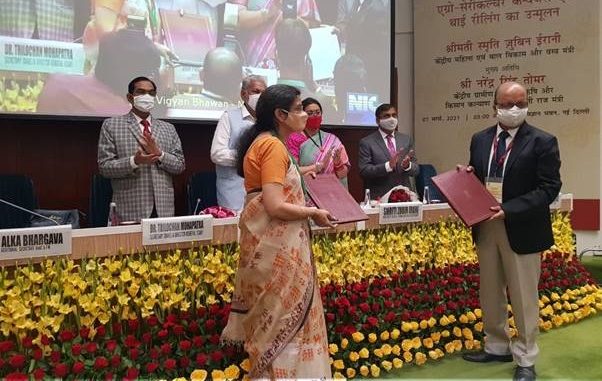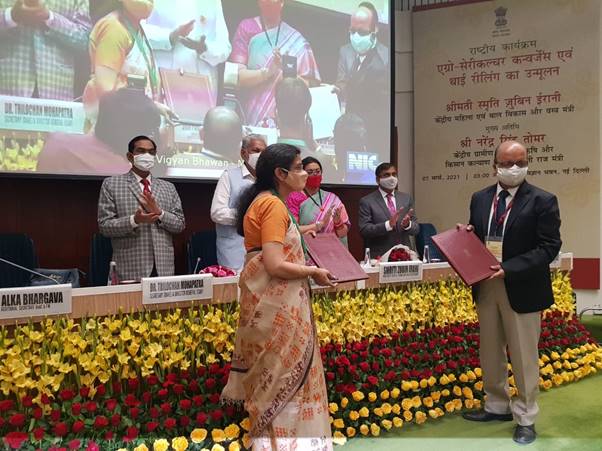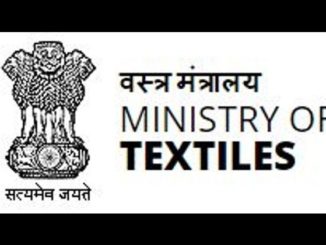
Mar 8: The Ministry of Agriculture and Farmers Welfare today signed a Memorandum of Understanding (MoU) with the Central Silk Board under the Ministry of Textiles on a convergence model for the implementation of Agroforestry in the silk sector under the ongoing Sub-Mission on Agroforestry (SMAF) Scheme.

The MoU was signed by Dr. Alka Bhargava, Additional Secretary, DAC&FW and Shri Rajit Ranjan Okhandiar, Member Secretary (Central Silk Board), Ministry of Textiles in the presence of Union Minister of State for Agriculture and Farmers Welfare Shri Parshottam Rupala and Union Minister for Textiles Smt. Smriti Zubin Irani and other dignitaries.
The signing of this MoU aims to incentivize the farmers to take up sericulture based Agroforestry models thereby contributing to the Make in India and Make for the World vision of the Prime Minister. This linkage will add another dimension to agroforestry for faster returns to the growers as well as support the production of the range of silks that India is famous for. The Central Silk Board (CSB), Ministry of Textiles, Govt. of India will act as a catalyst to promote Agroforestry in the silk sector.
The Department of Agriculture, Cooperation and Farmers Welfare (DAC & FW) has been implementing the Sub-Mission on Agroforestry (SMAF) since 2016-17 as part of the recommendation of the National Agroforestry Policy 2014. India was the first country to have such a comprehensive policy which was launched at the World Agroforestry Congress held in Delhi in February 2014. At present, the scheme is being implemented in 20 States and 2 UTs.
SMAF aims to encourage farmers to plant multi-purpose trees together with the agriculture crops for climate resilience and an additional source of income to the farmers, as well as enhanced feedstock to inter alia wood-based and herbal industry. Hence there is a concerted effort to include medicinal, fruits, fodder, tree-borne oilseeds, lac host etc. in addition to the longer rotation timber species. The initiative of formalizing the collaboration in the sericulture sector is especially targeted for augmentation of sericulture host plants e.g. Mulberry, Asan, Arjuna, Som, Soalu, Kesseru, BadaKesseru, Phanat, etc. to be cultivated both as block plantations and border or peripheral plantations on farmlands. Planting sericulture based tree species on the farm bunds and rearing silkworms has the potential of creating additional income opportunities for farmers besides their regular source of income from agriculture activities.
Disclaimer: We donot claim that the images used as part of the news published are always owned by us. From time to time, we use images sourced as part of news or any related images or representations. Kindly take a look at our image usage policy on how we select the image that are used as part of the news.

